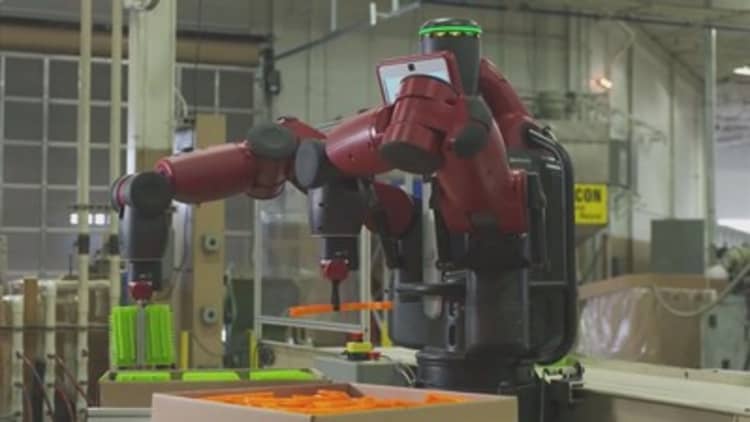
Almost 4 in 10 U.S. jobs are at risk from being taken over by robots, according to the latest report from consultancy firm PwC.
The analysis released Friday suggested that 38 percent of U.S. jobs could be at high risk of automation by the early 2030s, higher than the U.K. (30 percent), Germany (35 percent) and Japan (21 percent).
The 15-year timeline does not appear to be shared by the U.S. Department of the Treasury, however. In comments made to Axios Media on Friday, U.S. Treasury Secretary Steven Mnuchin said he was not worried about the mass displacement of U.S. workers by robots and could be a century before a labor crisis eventuates.
"It's not even on our radar screen ... 50-100 more years," Mnuchin said.
He added that he was "not worried at all" about robots displacing humans in the near future.
"In fact I'm optimistic".
Business leaders, such as billionaire investor Mark Cuban, were surprised by Mnuchin's indifference. On Twitter, Cuban retweeted the Axios story on Friday, with the comment: "Wow."
The PWC report said although the U.S. and U.K. shared similar economic makeups, the wider financial services sector in the U.S. is more susceptible to automation.
"The jobs of these U.S. retail financial workers are assessed by our methodology as being significantly more routine, and so more automatable than the average finance sector job in the UK, with its greater weight on international finance and investment banking," the report read.
PWC said financial and insurance workers in the U.S. focus mostly on the domestic retail market that requires lower educational levels than City of London specialists.
"Further analysis of the data suggests that the key difference is related to the average education levels of finance professionals being significantly higher in the U.K. than the U.S.," it said.
PWC said risks of robots replacing manual roles appear highest in sectors such as transportation and storage (56 percent), manufacturing (46 percent) and wholesale and retail (44 percent).
How total employment will be affected is not clear to PwC, which noted that the rise of artificial intelligence and robotics would, in itself, create new roles.
PWC argued that in general, wage packets should also rise as the robots perform jobs more quickly.
"Average pre-tax incomes should rise due to the productivity gains, but these benefits may not be evenly spread across income groups," it said.





